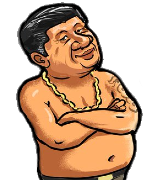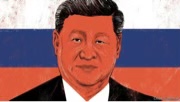(Thread IKs:
fart simpson)
|
Tankbuster posted:the last time I heard about a kdrama controversy for political reasons was Mr Sunshine because one of the anti-hero characters was supposedly in the Black Dragon society which created powerful backlash that the showrunners had to apologize for. A lot of somewhat older higher budget kdramas would occasionally blow their wad by shooting the first episode in southern chinese cities. I can't imagine what they'd make of Mortal Kombat
|
|
|
|

|
| # ? May 27, 2024 10:55 |
|
quote:One day when I was living in Shanghai, China, I was walking to work. I was walking through an area of old style Shikumen row-houses which were obviously lived in. This was a fairly central area just north of Baoshan Road metro station for those who might be curious. Anyway, I saw this huge police bus pull up on the other side of the road, and like 50 uniformed cops got out. I didn't really stay to watch was going on, and continued to work. I took the metro home after work, but the next morning I walked to work again, through the same area. Where the old shikumens stood yesterday, was now just piles of rubble.
|
|
|
|
Some Guy TT posted:Late one night in 1958, a man named Liu Bingshu whispered to his wife, the mother of their four young children, “There is no escape. I could be taken away … If I can come back, we will see each other again.” Liu would soon be the victim of a massive policy change by the Communist leader of China, Mao Zedong. Just a year earlier, Mao had famously demanded that “a hundred flowers bloom,” actively inviting criticism and suggestions from the public. But those who spoke up were soon labeled “rightist” enemies; the party estimated that they amounted to 5 percent of the population. Some half a million intellectuals, including Liu, were ordered to undergo “reeducation.” Thousands were dispatched to three labor camps in the northwestern Chinese province of Gansu. The deadliest of them was Jiabiangou, where less than half of the inmates are reported to have survived. Liu’s family never saw him again. Been trying to say this in so many words
|
|
|
|
Some Guy TT posted:In the last few years, China’s government has promoted increasingly conservative social values, encouraging women to focus on raising children. It has cracked down on civil society movements and made laws to drive out foreign influence. I just read this article to my wife, it's such ridiculous propaganda. "China has been totalitarian and outlawed feminism, but also it's a huge topic of discussion daily for the people in the country" like how can they hold these two thoughts in their heads at the same time? I sometimes think the tides might be changing, but then I read D&D or r/politicaldiscussion (the dumbest people on the planet) and see that the average person in the west has literally no loving idea what they're talking about.
|
|
|
|
NoModsNoMasters69 posted:I just read this article to my wife, it's such ridiculous propaganda. "China has been totalitarian and outlawed feminism, but also it's a huge topic of discussion daily for the people in the country" like how can they hold these two thoughts in their heads at the same time? I sometimes think the tides might be changing, but then I read D&D or r/politicaldiscussion (the dumbest people on the planet) and see that the average person in the west has literally no loving idea what they're talking about. cultural attitudes aside Wikipedia says “Thailand has the highest proportion of female CEOs in the world, with 30 percent of companies employing female CEOs, followed by the People's Republic of China, with 19 percent.[1] In the European Union the figure is 9 percent and in the United States it is 5 percent.” Mao did an order of magnitude more for epic girl bosses than Hillary Clinton it sounds like
|
|
|
|
women hold up 19% of the sky
|
|
|
|
FrancisFukyomama posted:cultural attitudes aside Wikipedia says “Thailand has the highest proportion of female CEOs in the world, with 30 percent of companies employing female CEOs, followed by the People's Republic of China, with 19 percent.[1] In the European Union the figure is 9 percent and in the United States it is 5 percent.” That's an interesting number, I wonder what the break down is for PM. Only UK and South Asian countries seem to have female prime ministers. And some EU countries. Also what's the female CEO stat for UK and Bangladesh?
|
|
|
|
NoModsNoMasters69 posted:I just read this article to my wife, it's such ridiculous propaganda. "China has been totalitarian and outlawed feminism, but also it's a huge topic of discussion daily for the people in the country" like how can they hold these two thoughts in their heads at the same time? I sometimes think the tides might be changing, but then I read D&D or r/politicaldiscussion (the dumbest people on the planet) and see that the average person in the west has literally no loving idea what they're talking about. the idea of a robust culture of substantive political discussion about topics that matter is so foreign to liberals we refuse to believe that is real even from the premise that China Bad and they censor things because they’re Bad, the fact that public sentiment holds so much weight that they cannot simply ignore it ipso facto makes it a more democratic society than ours
|
|
|
|
imagine a world in which OWS and BLM leaders were arrested early on in a failed attempt to stop protests that inevitably led to serious reforms of the financial sector and the police. as opposed to, oh wait the state still arrested and assassinated a bunch of people but didn’t even take credit for it being political action? and nothing changed? I love freedom!
|
|
|
|
NoModsNoMasters69 posted:D&D or r/politicaldiscussion .. the average person in the west 
|
|
|
|
I like how China is assumed to be way worse for women than the us by default bc they’re Bad Asian Misogynists even as we rapidly dismantle abortion rights and have entire states run by child marrying psycho cults
|
|
|
|
FrancisFukyomama posted:I like how China is assumed to be way worse for women than the us by default bc they’re Bad Asian Misogynists even as we rapidly dismantle abortion rights and have entire states run by child marrying psycho cults Freedom ain't free hippie.
|
|
|
|
NoModsNoMasters69 posted:I just read this article to my wife, it's such ridiculous propaganda. "China has been totalitarian and outlawed feminism, but also it's a huge topic of discussion daily for the people in the country" like how can they hold these two thoughts in their heads at the same time? I sometimes think the tides might be changing, but then I read D&D or r/politicaldiscussion (the dumbest people on the planet) and see that the average person in the west has literally no loving idea what they're talking about. yeah simultaneously outlawed by nefarious dictator Xi and on multiple top selling lists and openly discussed on social media by hundreds of millions of people Lol. Cool article
|
|
|
|
FrancisFukyomama posted:I like how China is assumed to be way worse for women than the us by default bc they’re Bad Asian Misogynists even as we rapidly dismantle abortion rights and have entire states run by child marrying psycho cults even the expats who’ve spent time in multiple East Asian countries can’t deny how Korea and Japan are worse for women
|
|
|
|
yeah wtf is r/politicaldiscussion ?
|
|
|
|
thats uour favorite webstie
|
|
|
|
eSports Chaebol posted:even the expats who’ve spent time in multiple East Asian countries can’t deny how Korea and Japan are worse for women That article refers to 'Misogyny' in Japan in quotation marks
|
|
|
quote:Ueno declined multiple requests to be interviewed for this story. Lmao
|
|
|
|
|
eSports Chaebol posted:even the expats who’ve spent time in multiple East Asian countries can’t deny how Korea and Japan are worse for women my academic feminist background really turned me against both expats and the fourth wave when i got there i really didnt get at first why very basic 101 stuff was being presented as if it were uniquely korean but figured that once i could read in actual korean and better research it then it would make more sense given that these were all being treated as recent developments instead what i found out was that korean feminists used to be at the vanguard of international solidarity basically creating the comfort woman issue out of collaboration with japanese feminists who could read imperial historical records then they got turned onto english internet feminism and over the course of ten years the movement transformed from one that advocated for peace movements and reconciliation with north korea to one that said mandatory military service is good actually because it gives women a comparative labor advantage its difficult to explain any of this without sounding like a bit of a nut as some of you might have noticed
|
|
|
|
Some Guy TT posted:my academic feminist background really turned me against both expats and the fourth wave when i got there i really didnt get at first why very basic 101 stuff was being presented as if it were uniquely korean but figured that once i could read in actual korean and better research it then it would make more sense given that these were all being treated as recent developments they switched on the social media brain warping machine about 10 years ago so makes sense. anything to defeat communism er um I mean "human rights violators who may be doing a genocide by certain legal definitions we recently made up also something something LGBT
|
|
|
|
surely we give a poo poo about all that human rights/lgbt/racial equality stuff and it's not just a hosed up "well if we can't squash any country like a bug on a whim then WHAT WILL WE DO ABOUT THE RULES BASED INTERNATIONAL ORDER (that exists in a comically slanted fashion solely to enrich our bourgeoisie)"
|
|
|
|
https://twitter.com/MsMelChen/status/1707737480378646791?s=20 Did not expect her to drop the T slur before I expanded the thread. Very normal-brained person.
|
|
|
|
https://twitter.com/Eivor_Koy/status/1706459684872540320 communist china is genociding the desert
|
|
|
|
Danann posted:https://twitter.com/Eivor_Koy/status/1706459684872540320 where are they getting the water from? genuinely curious additional coverage https://news.cgtn.com/news/2021-02-24/How-Xi-s-initiative-transformed-China-s-most-uninhabitable-areas-Y8SS9b18ti/index.html http://english.scio.gov.cn/m/in-depth/2020-12/11/content_77001384_2.htm 
corona familiar has issued a correction as of 00:33 on Sep 30, 2023 |
|
|
|
corona familiar posted:where are they getting the water from? genuinely curious i dunno if you know this, but theres infinite water under the ground that can never run out, they're probably using that source- i am californian
|
|
|
|
celadon posted:source- i am californian  
|
|
|
|
DiscountDildos posted:https://twitter.com/MsMelChen/status/1707737480378646791?s=20 disgusted drake: uyghur genocide approving drake: panda genocide
|
|
|
|
DiscountDildos posted:https://twitter.com/MsMelChen/status/1707737480378646791?s=20 Show me the angry tankies, Ms Chen, because I thought getting mad at pandas for needing to be jacked off and only eating wood is fine even if it's not new territory
|
|
|
|
corona familiar posted:where are they getting the water from? genuinely curious Idk if it was that place specifically but a program I watched about de-desertification (it might have been an episode of No Poverty Land) showed that the plantings increased rainfall.
|
|
|
|
DiscountDildos posted:Did not expect her to drop the T slur before I expanded the thread. Very normal-brained person. Tankie with the hard-e
|
|
|
|
https://twitter.com/JChengWSJ/status/1707681872828846188?t=k5YLRbPCBFbBJUqgoJa0sQ&s=19 Okay I'm sorry but anyone working for Nick Kroll is 1,000% CIA
|
|
|
|
first they came for the corrupt officials, then the billionaires, then the CIA agents and i didn't stood up for them...
|
|
|
|
Telluric Whistler posted:Show me the angry tankies, Ms Chen, because I thought getting mad at pandas for needing to be jacked off and only eating wood is fine even if it's not new territory she should try the recent schtick of honoring nazis by "ackstually...", that would actually be funny
|
|
|
|
Palladium posted:she should try the recent schtick of "accidental" honoring nazis, that would be actually funny
|
|
|
|
Sounds like the Pandas beat up that Falun gang woman and stole her lunch when they were in grade school.
|
|
|
|
Some Guy TT posted:my academic feminist background really turned me against both expats and the fourth wave when i got there i really didnt get at first why very basic 101 stuff was being presented as if it were uniquely korean but figured that once i could read in actual korean and better research it then it would make more sense given that these were all being treated as recent developments lmao what the gently caress?
|
|
|
|
corona familiar posted:where are they getting the water from? genuinely curious my understanding is that they channeled water from the Yellow River and its tributary, but also planted drought resistance plants on such a scale that it changed the climate, leading to more water retention during the little rainfall they get
|
|
|
|
BULBASAUR posted:my understanding is that they channeled water from the Yellow River and its tributary, but also planted drought resistance plants on such a scale that it changed the climate, leading to more water retention during the little rainfall they get are you telling me the seeseepee genocided the river which is definitely a very different thing from america's growing trillion hectares of cornfields
|
|
|
|
gradenko_2000 posted:https://twitter.com/JChengWSJ/status/1707681872828846188?t=k5YLRbPCBFbBJUqgoJa0sQ&s=19
|
|
|
|

|
| # ? May 27, 2024 10:55 |
|
Some Guy TT posted:my academic feminist background really turned me against both expats and the fourth wave when i got there i really didnt get at first why very basic 101 stuff was being presented as if it were uniquely korean but figured that once i could read in actual korean and better research it then it would make more sense given that these were all being treated as recent developments 
|
|
|




































